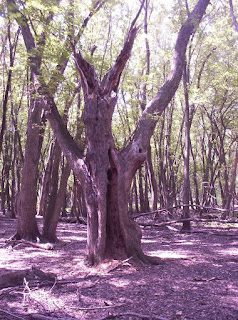Some weeks ago, the yoga service organization Off the Mat into the World stirred up a flurry of controversy for showing up at the Democratic and Republican National Conventions with a team of eager volunteers to host The Huffington Oasis.
Their intention? To provide politicians and media delegates with “a refuge where they could come to reconnect with their bodies, minds and intentions,” and perhaps approach the “supercharged environment” of a political convention with more mindfulness and compassion. Sounds innocent enough, right? But the response they received from the yoga community was largely one of criticism and anger...
The above is from the introduction to an interview over at the Intent blog with Seane Corn and Kerri Kelly in response to criticism of the Oasis project. Having contributed my own piece to the discussion a little under a month ago, I wanted to offer some additional response to the interview, as well as other posts I've read in recent weeks.
One of the things I read under the surface of the interview is that Seane and the other leaders of their group are placing a lot of focus on the electoral process. It’s an “inside” approach, something that will never be very satisfying to people like me, who view grassroots action and activism as more important in the current conditions than trying to get X, Y, or Z elected and/or to vote for certain laws. But I can appreciate well thought out and targeted inside efforts that aim to address systemic issues, and disrupt the narratives of greed and injustice that drive so much of current policy making. What I see with OTM’s Oasis and Yoga Votes is some of the “right” language, but not nearly enough clear linking of what they are doing to addressing systemic injustice and oppression.
I actually think the non-partisan stance they have been trying to take is a positive. If this were simply a program to get yoga folks to vote for Democrats, I’d be all over it with criticisms because a) the two big parties are miserable is so many ways that regardless of some differences, they fail to represent (in my view) the needs of the majority of us and b) the sense of working together across party lines on issues that they are aiming at would be totally lost.
What frequently disappoints me about the yoga community (and spiritual communities as a whole) is the ways in which all forms of critical discussion are lumped into the category of judgment, and swept away as being "unyogic" somehow. The kind of rigor needed to suss out wisdom and right action tends to be overwhelmed by simplistic, overly rosy thinking in yoga circles. The Oasis project needs to be critically examined by those of us interested in linking yoga practices with social engagement precisely so that future projects can have clearer visions, and be more likely to create the kind of social change so many claim to desire.
On the other side of the coin, the nastiness amongst some of the critics is also a hindrance. My own original blog post on the topic included a few lines I could have written with less venom. For me, that venom comes from seeing so little respect for critical rigor amongst the general yoga community, and feeling marginalized. Perhaps others amongst the critics also feel this way, and are responding by lashing out at public figures like Seane Corn.
I appreciate her efforts to recognize and check those places within her that block her from connecting with the humanity of others. That's an excellent example for all of us. At the same time, optimism and compassion not grounded in wisdom and awareness of the real conditions on the ground leads to more misery in the end.
Overall, I think social movements and politically active people struggle with is figuring out ways to debate and provide critical feedback about issues without descending into personal attacks and us vs. them thinking. So, it shouldn't be a surprise that such us vs. them thinking has arisen in discussions about the Oasis Project and its affiliates.
How can these different sides come together in respect for the gifts each has? How can those with the tools of critical intelligence respect those with the optimism and positive energy?
I've been sitting with these questions for years, as I've see them unfold into oppositional sides again and again.
We need both, but these qualities seem to naturally spark fear and defensiveness. Seems to me that zeroing in on that fear and defensiveness, individually and in groups, is a key piece of work for humanity.


